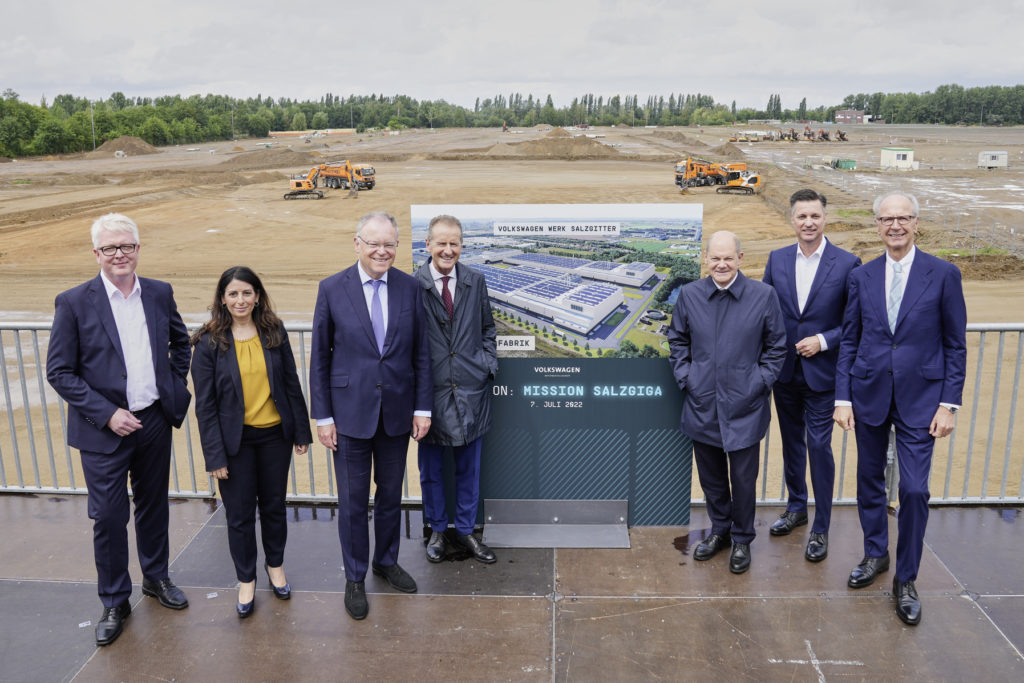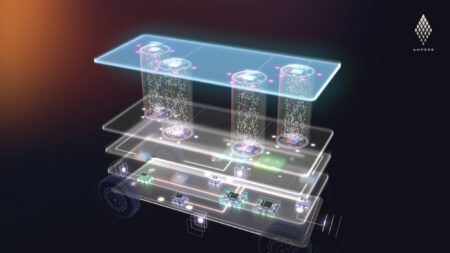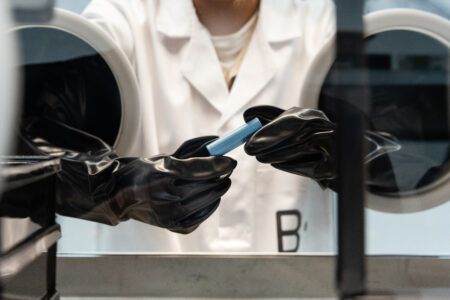Volkswagen began construction of its first EV battery cell factory in Salzgitter, Germany, which aims to become a blueprint for all future cell factories throughout Europe.
Production at the new facility is scheduled to start in 2025, with a planned capacity of 40GWh per year. With immediate effect, responsibility for global battery business is to be held by the newly created company PowerCo. In addition to cell production, the new company will be responsible for activities along the entire battery value chain.
Up until 2030, PowerCo is to invest more than €20 billion (US$20.3bn) together with partners in the development of the business area, to generate annual sales in excess of €20 billion and to employ up to 20,000 people in Europe alone.
Herbert Diess, CEO of Volkswagen AG, said: “Today we are not only laying a foundation stone but also marking a strategic milestone. The battery cell business is one of the cornerstones of our NEW AUTO strategy which will make Volkswagen a leading provider of the sustainable, software-driven mobility of tomorrow. Establishing our own cell factory is a megaproject in technical and economic terms.”
From Salzgitter, the company will manage international factory operations, the further development of cell technology, vertical integration of the value chain and the supply of machinery and equipment to the factories. Looking ahead, further products such as major storage systems for the energy grid are planned.
Following Salzgitter, the next cell factory is to be established at Valencia. Sites are currently being identified for three further cell factories in Europe. In addition to Europe, PowerCo is also already exploring the possibility of further gigafactories in North America.
PowerCo is to be managed by CEO Frank Blome, COO Sebastian Wolf, CFO Kai Alexander Müller, CTO Soonho Ahn, Chief Purchasing Officer Jörg Teichmann and Chief Human Resources Officer Sebastian Krapoth.

Thomas Schmall, technology and supervisory board chairman of PowerCo, said: “In building our first in-house cell factory, we are consistently implementing our technology roadmap. PowerCo will become a global battery player. The company’s major strength will be vertical integration from raw materials and the cell right through to recycling. In future, we will handle all the relevant activities in-house and will gain a strategic competitive advantage in the race to take the lead in e-mobility. We have secured a top team for this great undertaking.”
Salzgitter is to be a blueprint for cell factories throughout Europe. “What we have put to the test millions of times over with vehicle platforms such as the MQB and MEB will also lay the foundation for establishing cell production: we will be standardizing on the basis of European standards and upscaling. This way, we will combine speed and cost optimization with the highest quality levels,“ said PowerCo CEO Frank Blome.
Standardization will cover equipment, buildings and infrastructure but also products, processes and IT. Factories that can rapidly be converted for further product and production innovations will be created. Each factory will be fully operated on electricity from regenerative sources and will be designed for future closed-loop recycling.
Volkswagen also unveiled the prismatic unified cell at the Power Day in 2021. This allows the flexible use of a raft of different cell chemistries and will be used in up to 80 percent of all Group models. At Salzgitter, unified cells for the volume segment are to be produced from 2025 onwards.
In the future, the plant is to reach an annual capacity of 40 GWh – enough for about 500,000 electric vehicles. By 2030, the Volkswagen Group intends to operate six cell factories with a total volume of 240 GWh throughout Europe together with partners. The new unified cell harnesses synergy effects and will reduce battery costs by up to 50 percent. The prototypes produced to date have demonstrated good performance with respect to range, charging times and safety.





